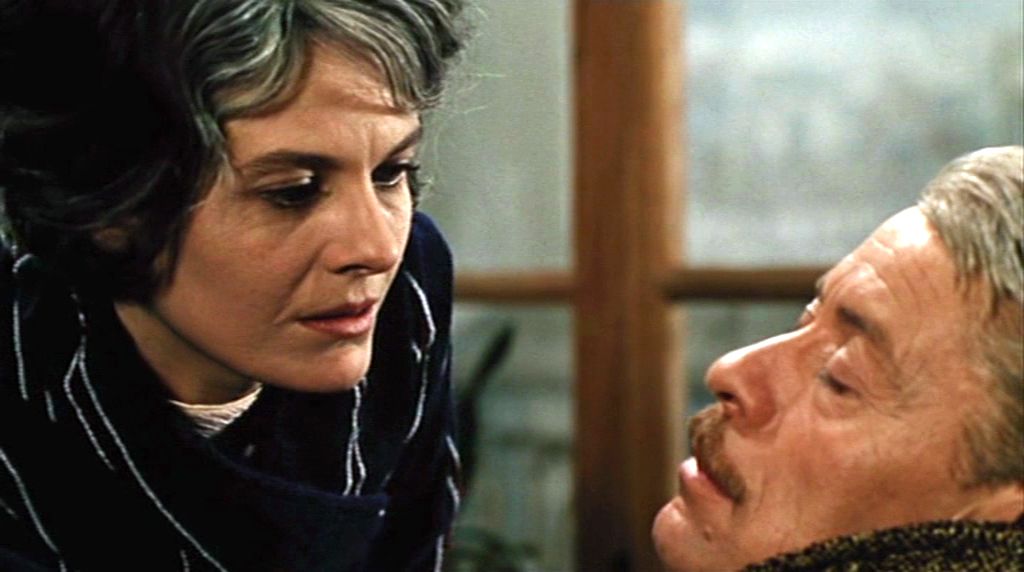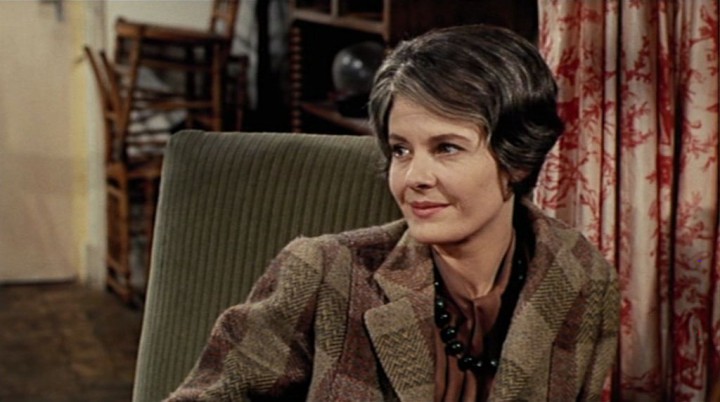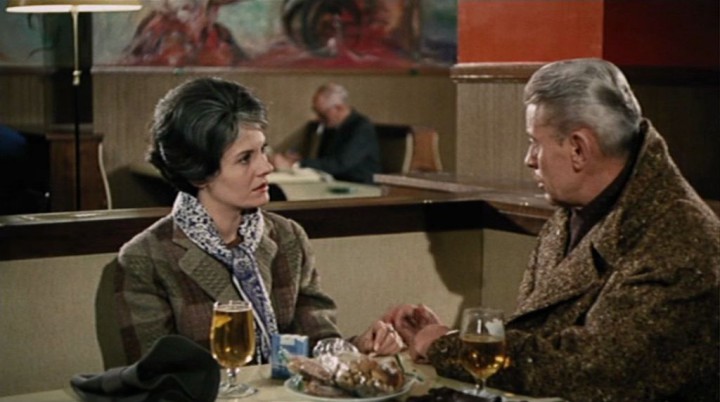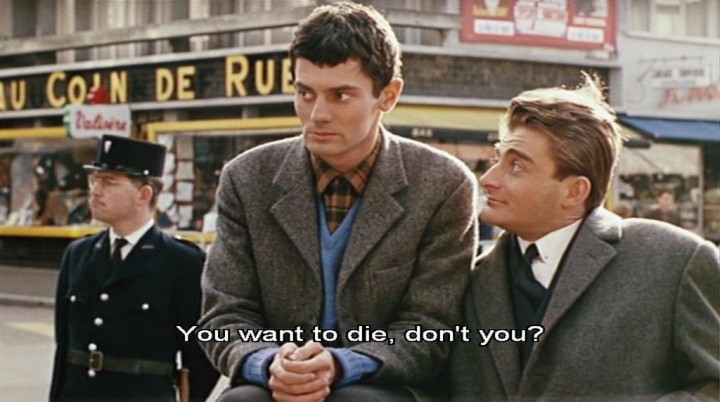I almost didn’t get to review this — in large part because it turns out that Alain Resnais’ third feature, Muriel, or The Time of Return (1963), is not an easy film to find. The copy I finally did get turned out to have subtitle trouble — and my French isn’t that good (and that’s understating the case). I did at last find a player that would decode the titles. I say all this because by the time I got to the film, I was not in the best or most receptive mood. It didn’t matter. It turned out that I was quickly transfixed by the film. Finally, I was blown away by it — far more than I’ve ever been by a Resnais film. It’s not the story that accomplishes this. The story is interesting, but it’s not what makes Muriel a great film.
The premise is that Hélène (Delphine Seyrig) is a middle-aged widow who lives with her moody — possibly deranged — step-son Bernard (Jean-Baptiste Thiérrée) in the provincial seaside town of Boulogne. She makes a living selling antique furniture out of their apartment, and seems to use most of it to support her gambling addiction. She’s expecting a visitor — an old flame named Alphonse (Jean-Pierre Kérien), who arrives complete with a “niece”, Françoise (Nita Klein), in tow. Whether she buys the “niece” thing is unclear (no one else does), but then what she expects of Alphonse is equally uncertain. For that matter, what Alphonse expects or wants — even why he came — is a mystery. Most of these questions are answered — at least to some degree. For that matter, what is eating at Bernard is slowly revealed — as is the question of his never-seen fiancee Muriel.
But what the film is really about is memory: how we shape it, distort it, experience it — and how it controls us. Even this can be seen as an allegory for France in 1963 at the end of its colonialist days. (This in turn is symbolized by a brand new, never occupied apartment building that everyone is waiting to see fall down.) But even this seems beside the point, since Resnais presents the film in the manner that memory works. The time-frame shifts — frequently within a single scene — as one moment prompts the memory (real or false) of another. It’s startling and it’s not always easy to follow, but it’s also amazing. It’s unlike anything else and it’s brilliant. I desperately need to see it again.
Classic World Cinema by Courtyard Gallery will present Muriel, or The Time of Return Friday, April 18, at 8 p.m. at Phil Mechanic Studios, 109 Roberts St., River Arts District (upstairs in the Railroad Library). Info: 273-3332, www.ashevillecourtyard.com







Before you comment
The comments section is here to provide a platform for civil dialogue on the issues we face together as a local community. Xpress is committed to offering this platform for all voices, but when the tone of the discussion gets nasty or strays off topic, we believe many people choose not to participate. Xpress editors are determined to moderate comments to ensure a constructive interchange is maintained. All comments judged not to be in keeping with the spirit of civil discourse will be removed and repeat violators will be banned. See here for our terms of service. Thank you for being part of this effort to promote respectful discussion.